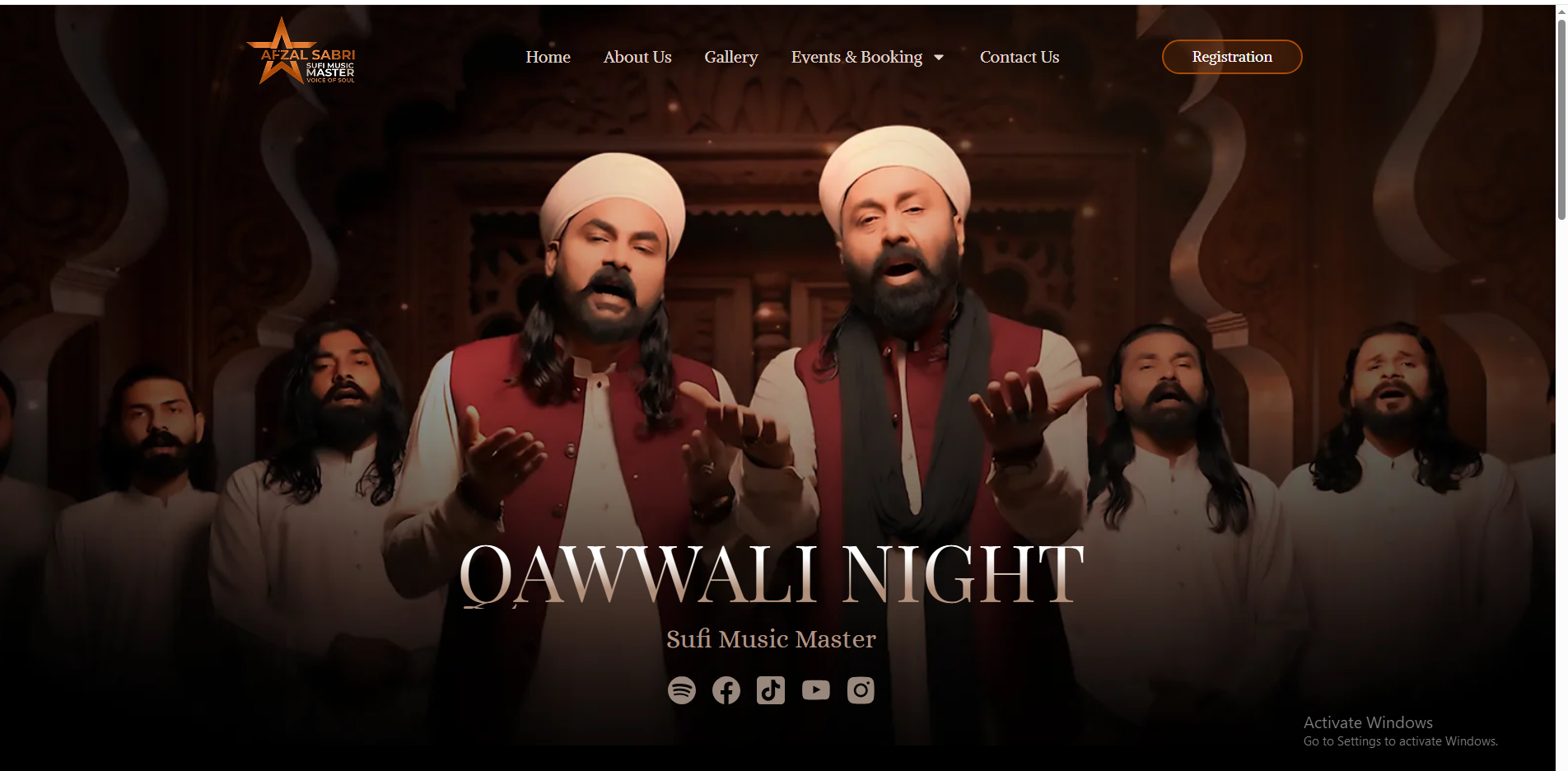Qawali is more than just music—it is a spiritual and cultural journey that connects hearts to divine love. In Pakistan, Qawali holds a special place in society, drawing millions of people to shrines, festivals, and special gatherings where the magic of this art form comes alive. From the historical roots of Sufi traditions to modern-day performances by maestros like Afzal Sabri, Qawali has become a symbol of devotion, unity, and heritage.
This blog explores the essence of Qawali, its origin, importance in Pakistan, legendary performers, and why it continues to inspire generations worldwide.
What is Qawali?
Qawali is a form of Sufi devotional music that originated in South Asia. Rooted in Persian, Arabic, Turkish, and Indian influences, it is performed in a group setting led by a lead vocalist, accompanied by harmoniums, tablas, dholak, and handclaps. The word “Qaul,” meaning “utterance,” forms the basis of Qawali, as the lyrics often convey messages of divine love, spirituality, and connection with God.
Unlike conventional music, Qawali is designed to stir the soul, carrying listeners into a state of spiritual ecstasy. In Pakistan, it is often performed at shrines of Sufi saints, especially during Urs (death anniversaries), where devotees gather to seek blessings.
Historical Roots of Qawali
Qawali dates back to the 13th century when Amir Khusro, a disciple of the great Sufi saint Nizamuddin Auliya, introduced this art form in the Indian subcontinent. The purpose was to make Sufi teachings more accessible through rhythm and poetry. Over time, it flourished in regions that are now part of Pakistan, becoming a central part of spiritual and cultural identity.
With the establishment of Pakistan in 1947, Qawali became more than just religious devotion—it became an expression of national and cultural pride.
Qawali in Pakistan: A Cultural Treasure
In Pakistan, Qawali is not limited to shrines; it has entered mainstream culture. Television, concerts, and festivals showcase this music, introducing it to younger generations. Events such as Qawali Nights are popular across cities like Karachi, Lahore, and Islamabad, attracting both local and international audiences.
Popular Venues and Celebrations
- Shrines of Lahore: Data Darbar and Shah Jamal are iconic venues where Qawali continues to thrive.
- Karachi Gatherings: Known for vibrant Qawali nights, Karachi hosts cultural events that feature top performers.
- Islamabad: The capital organizes musical evenings where Qawali blends spirituality with entertainment.
This shows how Pakistan has embraced Qawali not just as a religious ritual but also as a cultural identity.
Legendary Qawwals of Pakistan
The history of Qawali in Pakistan is filled with legendary voices who took this art form to international stages. Some iconic names include:
- Nusrat Fateh Ali Khan: Known worldwide as the “Shahenshah-e-Qawali,” his powerful voice brought global recognition to Pakistani Qawali.
- Sabri Brothers: Haji Ghulam Farid Sabri and Maqbool Ahmed Sabri popularized Qawali across Pakistan and beyond, making their style unforgettable.
- Aziz Mian Qawwal: Famous for his energetic and deeply spiritual performances.
- Afzal Sabri: Continuing the rich Sabri legacy, Afzal Sabri has become a respected name in Pakistan’s Qawali tradition, carrying forward both the style and spiritual essence of his ancestors.
Each of these legends ensured that Qawali would remain alive, adapting to changing times while preserving its soulful depth.
The Spiritual Power of Qawali
One of the most unique aspects of Qawali is its ability to take listeners on a spiritual journey. The repetitive verses, poetic expressions, and rising tempo are designed to create a state of trance, known as Wajd.
For devotees, this experience is not entertainment but a form of worship, connecting them with the divine presence. It is this spiritual power that makes Qawali timeless, transcending borders and languages.
Qawali in Modern Times
With globalization and digital platforms, Qawali has reached audiences far beyond Pakistan. YouTube, Spotify, and social media now feature live recordings and performances, keeping the tradition alive.
Modern adaptations have also emerged where Qawali is blended with contemporary music styles, making it appealing to younger audiences without losing its core essence. Artists like Afzal Sabri are playing an important role in ensuring that Qawali remains authentic while reaching new audiences worldwide.
Why Qawali Matters in Pakistan
Qawali is not just music—it is Pakistan’s cultural heritage. Here’s why it matters today:
- Preserves Sufi Tradition: Qawali keeps the teachings of Sufi saints alive through poetry and performance.
- National Identity: It reflects Pakistan’s deep connection with spirituality and music.
- Global Recognition: Qawali has given Pakistan an artistic identity recognized worldwide.
- Community Bonding: Qawali gatherings bring people together, transcending social and cultural barriers.
Afzal Sabri: Carrying the Legacy Forward
Among modern Qawwals, Afzal Sabri stands out as a torchbearer of the Sabri family’s tradition. His performances are known for their depth, soulful delivery, and ability to transport audiences into a spiritual realm.
Through Afzal Sabri’s official platform, fans can explore his music, upcoming events, and deep connection with Qawali. His dedication ensures that the golden era of Qawali continues to inspire future generations.
The Global Appeal of Qawali
From Pakistan to international stages, Qawali has built a global following. It is performed in countries like the UK, USA, and across Europe where South Asian communities keep their cultural roots alive. Music festivals often feature Pakistani Qawwals, showing that this art form transcends cultural boundaries.
This global reach has elevated Qawali to not just being a cultural treasure of Pakistan but a universal language of love and spirituality.
Conclusion
Qawali is the heartbeat of Pakistan’s spiritual and cultural life. Rooted in centuries-old Sufi traditions, it continues to inspire millions through its poetic verses, rhythmic beats, and soul-stirring performances. Legendary voices like Nusrat Fateh Ali Khan, the Sabri Brothers, and now Afzal Sabri ensure that Qawali remains timeless.
As the world embraces this art form, Pakistan proudly stands as the home of Qawali—a tradition of love, faith, and music that unites people beyond borders.
